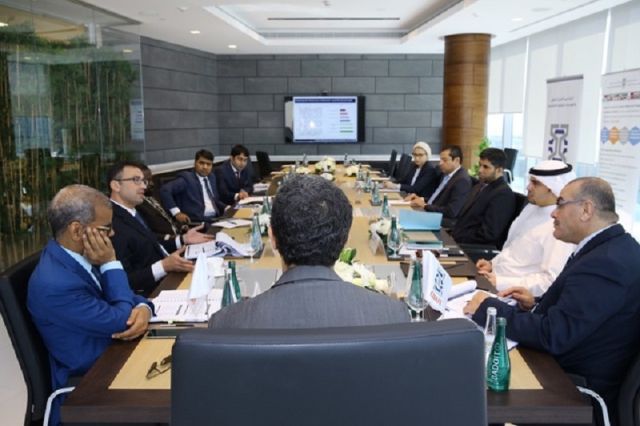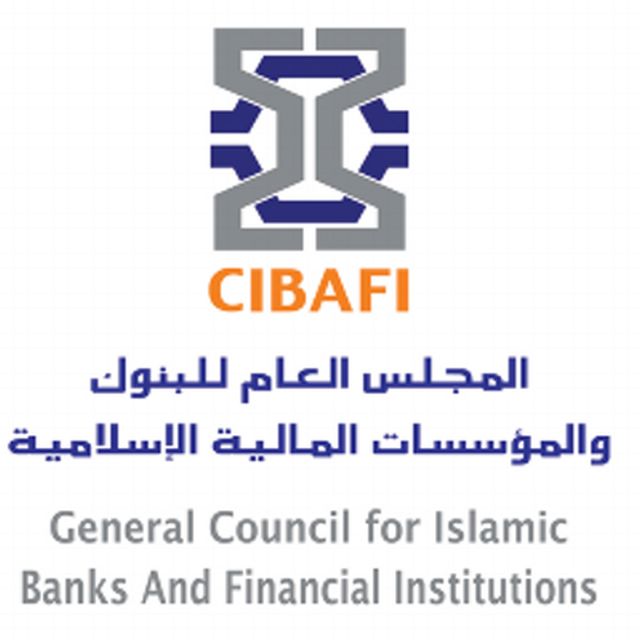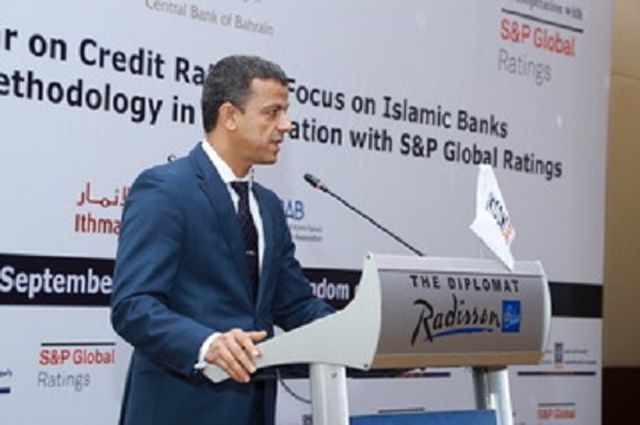
by admin | May 25, 2021 | Muslim World
 Manama : Aligned with its role as advocate of the Islamic Financial Services Industry (IFSI), the General Council for Islamic Banks and Financial Institutions (CIBAFI), the global umbrella of Islamic financial institutions, announced that it has submitted its comments on Tuesday to the Basel Committee on Banking Supervision (BCBS) on the Consultative Document on “Sound Practices: Implications of fintech developments for banks and bank supervisors.”
Manama : Aligned with its role as advocate of the Islamic Financial Services Industry (IFSI), the General Council for Islamic Banks and Financial Institutions (CIBAFI), the global umbrella of Islamic financial institutions, announced that it has submitted its comments on Tuesday to the Basel Committee on Banking Supervision (BCBS) on the Consultative Document on “Sound Practices: Implications of fintech developments for banks and bank supervisors.”
The Consultative Document has been issued on 31st August 2017 and was open for public consultation until 31st October 2017.
CIBAFI thanked the BCBS for giving the opportunity to the Islamic Financial Services Industry to comment on the Consultative Document. CIBAFI has provided collective feedback of its member banks from over 32 jurisdictions, comprising the following key points.
First, the Consultative Document sets out five scenarios for the way the banking industry may change, ranging from one in which existing banks adopt new technology to improve their services (but customer relationships remain essentially unchanged), to one in which banks become essentially irrelevant, as customers interact directly with individual financial services providers. CIBAFI believes that, while major banks in the most developed countries may be able to adapt to most of these scenarios, and will have themselves a role in determining which will occur, this is less obvious for smaller banks in less developed countries. Most Islamic banks are of this kind, and there are indeed challenges in the way they need to adapt their knowledge and resources for such changes. Further support from bank supervisors would be welcome.
Second, the BCBS implicitly recognizes that fintech firms may have a greater impact in some markets than others. The suggestion is that in less developed banking markets, and mainly where financial inclusion is relatively low, new entrants may be able to use technology to reach consumers who have no, or limited, existing banking relationships. However, although many Islamic banks operate in less developed and low financial inclusion markets, for Islamic banking, in particular, the threat of new entrants is smaller due to the Shariah compliance requirements. It is thus an opportunity for Islamic banks to collaborate with fintech firms to enhance financial inclusion.
Third, the CD lays emphasis on the need to maintain Anti-Money Laundering and Countering the Financing of Terrorism (AML/CFT) controls in fintech-enabled transactions, though it recognizes the assistance that some new technologies, including artificial intelligence, may offer.
In conclusion, CIBAFI highlighted that its members have pointed out that more comprehensive researches might be needed to assess the macro level effect of fintech, the impact on the economy, financial stability, and the way the central banks may still influence the economy via the monetary and other policies. There may also be tax issues, including whether tax regimes provide incentives or disincentives for fintech firms. CIBAFI recognizes, therefore, need to highlight the importance of such work to the attention of those who do have competence in these areas.
In addition to policy and regulatory advocacy, CIBAFI continues to support the Islamic Financial Services Industry through various activities and initiatives. These include providing industry stakeholders with a platform to discuss emerging issues, representing the industry at major global financial events, and sharing knowledge through specialized publications and comprehensive training programmes.
CIBAFI is an international organization established in 2001 and Headquartered in the Kingdom of Bahrain. CIBAFI is affiliated with the Organization of Islamic Cooperation (OIC). CIBAFI represents the Islamic financial services industry globally, defending and promoting its role, consolidating co-operation among its members, and with other institutions with similar interests and objectives. With over 120 members from 32 jurisdictions, representing market players, international intergovernmental organizations and professional firms, and industry associations.
—SM/OIC-UNA

by admin | May 25, 2021 | Muslim World
 Manama : Aligned with its role as advocate of the Islamic Financial Services Industry (IFSI), the General Council for Islamic Banks and Financial Institutions (CIBAFI) – the global umbrella of Islamic financial institutions – on Tuesday submitted its comments to the Basel Committee on Banking Supervision (BCBS) on the Consultative Document on “Simplified alternative to the standardized approach to market risk capital requirements”.
Manama : Aligned with its role as advocate of the Islamic Financial Services Industry (IFSI), the General Council for Islamic Banks and Financial Institutions (CIBAFI) – the global umbrella of Islamic financial institutions – on Tuesday submitted its comments to the Basel Committee on Banking Supervision (BCBS) on the Consultative Document on “Simplified alternative to the standardized approach to market risk capital requirements”.
The Consultative Document was issued on June 29 and was open for public consultation until September 27, according to a statement received Thursday from CIBAFI.
CIBAFI thanked the BCBS for giving the opportunity to the IFSI to comment on the Consultative Document before the proposed simplified alternative approach is adopted. CIBAFI has provided collective feedback of its member banks from over 32 jurisdictions, comprising the following key points:
Islamic banks are, for the most part, relatively small by global standards and are mainly based in emerging markets. For that reason alone, they would be likely to take a very little market risk. The fact that they are Islamic, however, means that for Shariah compliance reasons, they will be very restricted in their ability to take short positions or to use derivatives. This is likely to make their market positions simpler still, and those positions are likely to remain simple in the longer term.
Moreover, the design of the reduced sensitivities-based method (R-SbM) is significantly different from the design of the already widely-used Basel II standardized approach. CIBAFI is therefore concerned that the implementation of this method may pose substantial implementing challenges and costs for Islamic banks that already use Basel II approach. In addition, the benefits of implementation are uncertain and yet to be clarified.
Therefore, the view of CIBAFI is to prefer a recalibrated Basel II approach, but of course subject to the details of the way this proposal is developed and its implications for capital.
In its submission to the BCBS, CIBAFI expressed its appreciation of the work that the BCBS does to maintain sound regulatory practices and highlighted the need for the BCBS to align its work recognizing the Islamic financial industry’s considerations.
In addition to policy and regulatory advocacy, CIBAFI continues to support the Islamic Financial Services Industry through various activities and initiatives. These include providing industry stakeholders with a platform to discuss emerging issues, representing the industry at major global financial events, and sharing knowledge through specialized publications and comprehensive training programs.
CIBAFI, an affiliate of the Organization of Islamic Cooperation (OIC), is an international organization headquartered in the Kingdom of Bahrain. It was established in 2001.
—AA/AB/IINA

by admin | May 25, 2021 | Business Summit, Events, Muslim World
 Manama : The General Council for Islamic Banks and Financial Institutions (CIBAFI), the umbrella of Islamic financial institutions, in cooperation with S&P Global Ratings and under the patronage of the Central Bank of Bahrain (CBB), launched a Seminar on Credit Ratings: Focus on Islamic Banks and Sukuk Ratings Methodology in Bahrain’s capital Manama on Sunday.
Manama : The General Council for Islamic Banks and Financial Institutions (CIBAFI), the umbrella of Islamic financial institutions, in cooperation with S&P Global Ratings and under the patronage of the Central Bank of Bahrain (CBB), launched a Seminar on Credit Ratings: Focus on Islamic Banks and Sukuk Ratings Methodology in Bahrain’s capital Manama on Sunday.
The seminar, which is being supported by Ithmaar Bank and the Bahrain Association of Banks, is aimed at engaging participants in the discussion on different credit rating criteria focusing on sovereign, Islamic banking and sukuk rating methodologies.
Both S&P Global Ratings and the General Council for Islamic Banks and Financial Institutions raised important views on the above topics, during the opening remarks, according to a press statement from the CBB.
In his welcoming address, CIBAFI Secretary General Abdelilah Belatik said: “We are delighted to see our member banks taking this opportunity to learn firsthand about Credit Rating and its impact on Islamic Financial Institutions. We also hope that these two days will help our members to understand in practical terms how Islamic banks and sukuks are rated from rating agency perspective.”
“Our collaboration with S&P Global Ratings is the first in the area of awareness and professional development, we are committed to continuing to bring the latest industry-driven initiatives to our members,” he added.
Commenting on the seminar, Dr. Mohamed Damak, head of Islamic Finance at S&P Global Ratings, said: “S&P Global Ratings is delighted to cooperate with CIBAFI on this training on banks and sukuk ratings. We are committed to providing such training sessions to enhance stakeholders’ understanding of our rating methodologies and promote transparency.”
Delegations from Bahrain, Bangladesh, Sudan, Saudi Arabia, Kuwait and the United Arab Emirates, as well as CIBAFI member institutions and regional regulators will engage in insightful discussions with senior directors from S&P Global Ratings.
The seminar topics have been prepared to cover areas including sovereign rating criteria, bank-specific rating factors, Islamic and conventional banking ratings and sukuk rating methodologies. Participants in the seminar will also discuss the sovereign ratings of the Gulf Cooperation Council (GCC) states, the future outlook for these countries and their banking sectors, as well as the risk assessment of each country, among many other topics.
This seminar is an initiative that is aligned with CIBAFI’s endeavor to enhance capacity building in the Islamic Financial Services Industry (IFSI) and increasing awareness and information sharing through partnerships between industry stakeholders and CIBAFI members, by the creation of a platform for face-to-face dialogue and closed-door discussions. It is also a part of the many initiatives by the S&P Global Ratings to provide market intelligence and develop Islamic financial market and credit ratings.
—AB/IINA

 Manama : Aligned with its role as advocate of the Islamic Financial Services Industry (IFSI), the General Council for Islamic Banks and Financial Institutions (CIBAFI), the global umbrella of Islamic financial institutions, announced that it has submitted its comments on Tuesday to the Basel Committee on Banking Supervision (BCBS) on the Consultative Document on “Sound Practices: Implications of fintech developments for banks and bank supervisors.”
Manama : Aligned with its role as advocate of the Islamic Financial Services Industry (IFSI), the General Council for Islamic Banks and Financial Institutions (CIBAFI), the global umbrella of Islamic financial institutions, announced that it has submitted its comments on Tuesday to the Basel Committee on Banking Supervision (BCBS) on the Consultative Document on “Sound Practices: Implications of fintech developments for banks and bank supervisors.”

